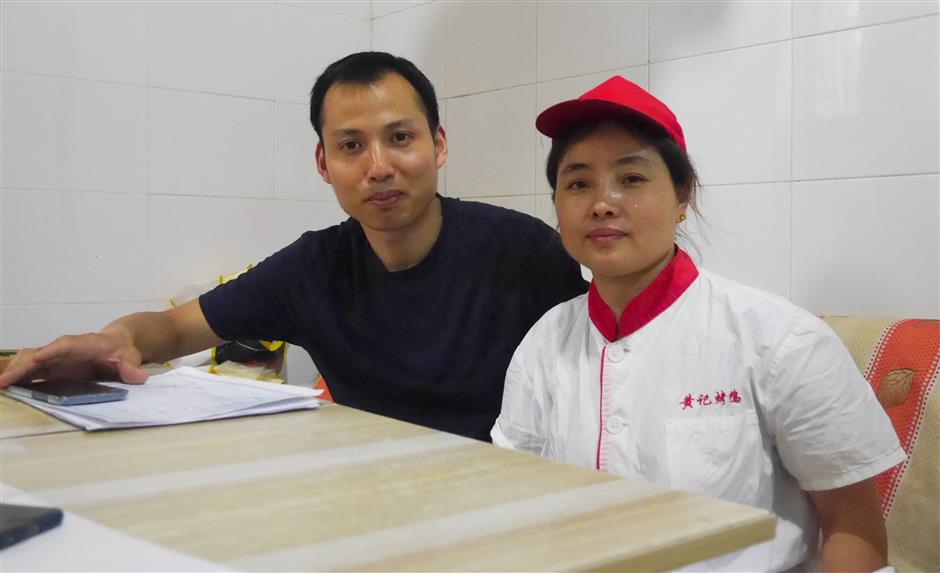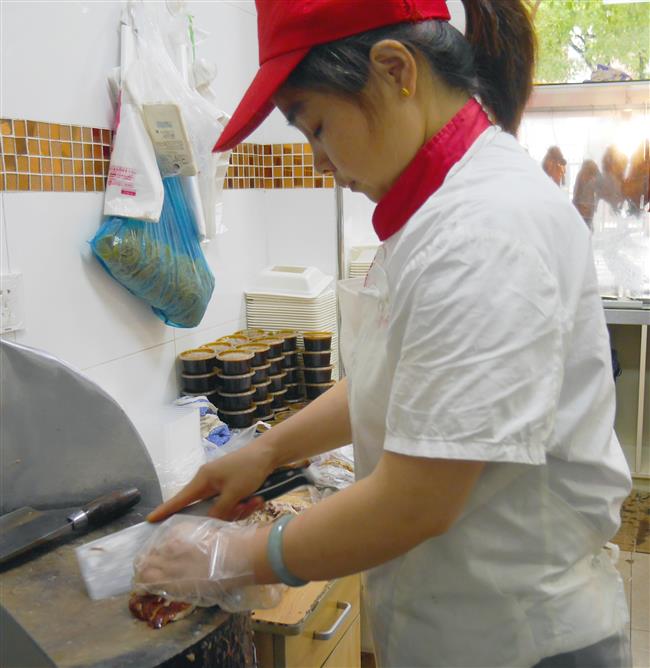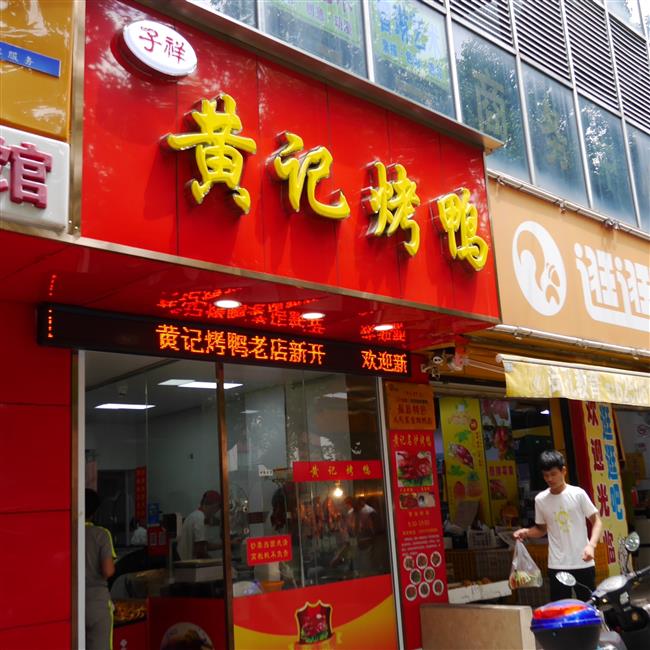Popular roast duck shop gains unwanted attention

Huang Weilong and Zhang Yin have to cope with unsought fame.
Huang Weilong had been operating a small but popular family-run roast duck shop in northeastern Shanghai's Hongkou District for 20 years when sudden media attention blew the lid off his low-key but happy existence.
“I didn’t know that being on TV would bring more trouble than joy to my family,” Huang says, after a food show heard about his takeaway shop and sent cameras to the doorstep.
The 39-year-old Anhui Province native opened Huang’s Roast Duck in an area of residential complexes on Yutian Road (by Miyun Road), providing a steady stream of customers who came to love his succulent ducks with crispy skin.
He and his wife Zhang Yin led what they thought was a charmed life ─ began at 5am for another day of roasting; closed at 7pm to clean up and take inventory. Day in and day out, their routine remained the same.
TV notoriety changed all that. Customers swarmed to the shop from all over Shanghai. The couple had to hire more employees to handle the demand.
“After the show aired, my wife barely got two hours of sleep a day,” says Huang. “Her hair was turning gray, and I was worried. Now if I get calls from the media, I hang up. All I want is to do my job, satisfy my customers and live a quiet life with my wife and two children.”
When Huang graduated from school at 17, he and his parents left Anhui to join an uncle who had opened a roast duck shop in Shanghai.
The uncle was a duck specialist, no matter how the fowl was cooked. He taught Huang the ropes.
First step: know how to select a good duck.
“You need to feel it with your hand to see how thick the breast meat is,” Huang says. “It can’t feel too thick or too thin. You learn to get it just right.”
Back then, he was handling up to 200 ducks a day, from slaughter to roasting.
“It was boring, and even today, I still think part of my work is boring,” says Huang. “But I know there is always room for improvement, so that keeps me going.”
After several years of working in his uncle’s shop, which is still in business near Shanghai Railway Station, Huang decided to open his own roast duck takeaway. He liked the feeling of being independent.
In his first several years, Huang found himself harassed by others in the business, mostly fellow migrants from Anhui, who were jealous of his success and didn’t want the competition. He was blackmailed and threatened, and once beaten up outside his shop.
“Many of them were in dining industry, and they wanted me to close my shop,” he says. “I guess that was because my business was doing so well.”
But Huang was not to be intimidated. The man who beat him up was caught and jailed, but nightmares about the harassment he had faced stayed with him for a long time.
He says his somewhat obsessive behavior makes him a perfectionist when it comes to ducks. Whenever he has unsold roast ducks at the end of a day, he blames himself for not cooking them to perfection.
“I try to put myself in my customers’ shoes, imagining how would I feel if I had tasted one of my ducks,” he says. “Sometimes, that makes me feel ashamed. I know that’s not logical, but I can’t help it. I keep striving for perfection.”

Huang's wife Zhang Yin cuts up ducks to customers' specifications.

Succulent roast ducks hang in the shop window.
Huang met his wife, who's from his hometown, in 2009. He was immediately attracted to her pretty features and shy smile. After their marriage, she became his sous chef and learned to roast duck from scratch.
“I taught her how to handle raw ducks and then roast them to perfection,” he says. “She was smart and a fast learner.”
Now with more employees on hand, Zhang has given up kitchen chores to concentrate on counter sales. She wears a white-and-red uniform and greets customers warmly in the shop. She chops up the ducks according to their wishes.
The Mid-Autumn Festival is the busiest time of the year for Huang because the duck is traditional on the menu for the holiday. Customers start lining up in front of the shop at dawn, sometimes waiting three to four hours to buy one of Huang’s now famous delicacies.
“I remember one Mid-Autumn Festival when we closed up the shop at night and rode our bikes home,” Huang recalls. “As soon as we parked the bikes, we fell to the ground and slept there. We were so tired that we didn’t even have the strength to walk into our apartment.”
The couple expanded the shop last year, offering other dishes besides roast duck.
“I feel that Shanghai is a better city than it was 20 years ago, and we’re getting better too,” says Huang. “I still talk to my uncle regularly to discuss how to make better duck, and I also learn culinary tips from other chefs.”
His dream, he says, is to open a small but cozy restaurant catering to the elderly residents in his community.
“We would continue to sell roast duck and other dishes, along with noodles made from organic wheat,” he says. “That way, seniors could enjoy healthy, tasty meals.”

Huang's Roast Duck gains popularity in the neighborhoods.
















